 Michael Austin was honored with the 2022 AML Lifetime Achievement Award. The award was presented on July 23 as part of the Association for Mormon Letters Virtual Conference. John Bennion interviewed Michael, where they discussed his career, and the past, present, and future of Mormon Literature. You can watch a video of the interview here. You can also read “Mapping Futures: A Dialogue on Mormon Literary Studies“, the record of another recent dialogue between John and Michael, which is forthcoming from Literature & Belief. Below is the award citation, followed by a brief review of Michael’s career up to this point.
Michael Austin was honored with the 2022 AML Lifetime Achievement Award. The award was presented on July 23 as part of the Association for Mormon Letters Virtual Conference. John Bennion interviewed Michael, where they discussed his career, and the past, present, and future of Mormon Literature. You can watch a video of the interview here. You can also read “Mapping Futures: A Dialogue on Mormon Literary Studies“, the record of another recent dialogue between John and Michael, which is forthcoming from Literature & Belief. Below is the award citation, followed by a brief review of Michael’s career up to this point.
In describing his work, Michael Austin has written that “he writes occasionally on an incoherent (except to him) assortment of different topics, some of which have to do with Mormonism in American literature and culture.” Because Michael cares about careful reading, it’s important to discover what this “aw, shucks” rhetoric attempts to obscure.
 First, “occasionally” is a bit imprecise, perhaps even misleading. Michael writes constantly; he is astonishingly prolific. For more than a decade, he has published at the pace of approximately a book a year, and more than twice that many articles and book chapters, and countless blog posts and other contributions to the public intellectual conversation about Mormon literature, Latter-day Saint scripture, and related topics. As prolific an author as he is, Michael Austin is even more diligent at championing the work of others. He has been a consistent contributor to the work of the Association for Mormon Letters, writing countless book reviews, blog posts, and substantial essays in various publications that have drawn attention to the progress of Mormon literature. His name has appeared on the inside cover of Dialogue in various roles for at least a decade, and his name routinely graces the Table of Contents there as well. As a founder and editor at BCC Press, he has midwifed over a dozen books, and then gone around beaming and handing out cigars for them like the proudest possible papa. BCC Press has been the central mover in a blossoming of high-quality Mormon literature in the last half-decade, and Michael’s vision has been a driving force behind that blossoming.
First, “occasionally” is a bit imprecise, perhaps even misleading. Michael writes constantly; he is astonishingly prolific. For more than a decade, he has published at the pace of approximately a book a year, and more than twice that many articles and book chapters, and countless blog posts and other contributions to the public intellectual conversation about Mormon literature, Latter-day Saint scripture, and related topics. As prolific an author as he is, Michael Austin is even more diligent at championing the work of others. He has been a consistent contributor to the work of the Association for Mormon Letters, writing countless book reviews, blog posts, and substantial essays in various publications that have drawn attention to the progress of Mormon literature. His name has appeared on the inside cover of Dialogue in various roles for at least a decade, and his name routinely graces the Table of Contents there as well. As a founder and editor at BCC Press, he has midwifed over a dozen books, and then gone around beaming and handing out cigars for them like the proudest possible papa. BCC Press has been the central mover in a blossoming of high-quality Mormon literature in the last half-decade, and Michael’s vision has been a driving force behind that blossoming.
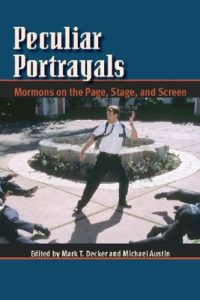 Next, we should regard with some suspicion the parenthetical assertion that the coherence of his work is apparent only to him. He richly deserves this award for what his literary engagement across many genres and topics consistently teaches: that our literature can both define us and challenge our sense of ourselves, that reading is morally and spiritually consequential, and that words are part of the great “welding link” that connects us to the past and the future, to all of God’s children, and to all that is highest in us.
Next, we should regard with some suspicion the parenthetical assertion that the coherence of his work is apparent only to him. He richly deserves this award for what his literary engagement across many genres and topics consistently teaches: that our literature can both define us and challenge our sense of ourselves, that reading is morally and spiritually consequential, and that words are part of the great “welding link” that connects us to the past and the future, to all of God’s children, and to all that is highest in us.
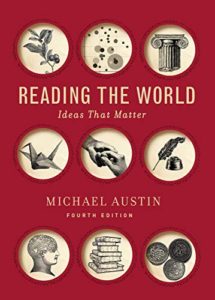 Michael’s work frequently stresses the possibilities of connection and reconciliation. His first book, Reading the World insists that the “Great Books” tradition and the imperatives of multicultural education are not in conflict. “Great ideas,” he writes, “are not the exclusive province of any culture, or of any historical epoch.” This catholic approach—that is, the understanding that truth and light are found everywhere in the records of human experience—has quietly enlivened Mormon literary culture. One of Michael’s most important contributions to Mormon criticism, the award-winning essay “The Function of Mormon Criticism at the Present Time” insists that the usual dichotomies between “Mormon” or “faithful” and “anti-Mormon” are not merely useless, but harmful, because they force a narrowness that hides the richness of Mormonism, not only the goodness, but the darkness. He concludes that “…like any other people, Mormons can be ignorant, blind, and wicked, but they can also be insightful, inspired, and magnificent. And we know that all of these attributes together constitute the story of Mormonism that the rest of the world needs to hear.” And it is not only Mormons, of course, whose stories Michael has tried to read and tell in rich and inclusive ways: he has considered the stories of America’s Founding Fathers to interpret their ideas in the context of their full humanity; he has read scriptural characters like Job and his friends in ways that give them dimension and nuance, and he has turned an unsparing eye on would-be messianic figures like Luke Skywalker and Harry Potter, to show the ways that they are not perfect and that their imperfections can give hope to the rest of us mere mortals. This is richness and nuance not for the graduate seminar goal of “complicating” the questions, but for the sake of getting more of us to ask new and better questions.
Michael’s work frequently stresses the possibilities of connection and reconciliation. His first book, Reading the World insists that the “Great Books” tradition and the imperatives of multicultural education are not in conflict. “Great ideas,” he writes, “are not the exclusive province of any culture, or of any historical epoch.” This catholic approach—that is, the understanding that truth and light are found everywhere in the records of human experience—has quietly enlivened Mormon literary culture. One of Michael’s most important contributions to Mormon criticism, the award-winning essay “The Function of Mormon Criticism at the Present Time” insists that the usual dichotomies between “Mormon” or “faithful” and “anti-Mormon” are not merely useless, but harmful, because they force a narrowness that hides the richness of Mormonism, not only the goodness, but the darkness. He concludes that “…like any other people, Mormons can be ignorant, blind, and wicked, but they can also be insightful, inspired, and magnificent. And we know that all of these attributes together constitute the story of Mormonism that the rest of the world needs to hear.” And it is not only Mormons, of course, whose stories Michael has tried to read and tell in rich and inclusive ways: he has considered the stories of America’s Founding Fathers to interpret their ideas in the context of their full humanity; he has read scriptural characters like Job and his friends in ways that give them dimension and nuance, and he has turned an unsparing eye on would-be messianic figures like Luke Skywalker and Harry Potter, to show the ways that they are not perfect and that their imperfections can give hope to the rest of us mere mortals. This is richness and nuance not for the graduate seminar goal of “complicating” the questions, but for the sake of getting more of us to ask new and better questions.
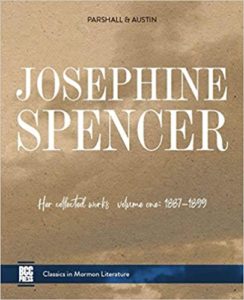 In the context of Mormon literature, Michael is fond of asking the question posed by Cole Porter: “If you want a future, darlin’, why don’t you get a past?” Building on the work of people like Eugene England, Lavina Anderson, Bruce Jorgenson, and Richard Cracroft, who insisted on paying attention to the earliest Mormon literature, Michael Austin has been doing the spadework for building a past for Mormon
In the context of Mormon literature, Michael is fond of asking the question posed by Cole Porter: “If you want a future, darlin’, why don’t you get a past?” Building on the work of people like Eugene England, Lavina Anderson, Bruce Jorgenson, and Richard Cracroft, who insisted on paying attention to the earliest Mormon literature, Michael Austin has been doing the spadework for building a past for Mormon 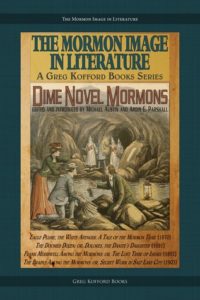 literature. Eschewing the fruitless quest to identify The Great Mormon Novel, he has explored the broad range of depictions of Mormonism in literature, from virulently anti-Mormon dime novels to didactic home literature and the broad expanse between. With BCC Press, he has inaugurated a Classics in Mormon Literature series, working with his co-editors to republish the works of Maureen Whipple and Josephine Spencer.
literature. Eschewing the fruitless quest to identify The Great Mormon Novel, he has explored the broad range of depictions of Mormonism in literature, from virulently anti-Mormon dime novels to didactic home literature and the broad expanse between. With BCC Press, he has inaugurated a Classics in Mormon Literature series, working with his co-editors to republish the works of Maureen Whipple and Josephine Spencer.
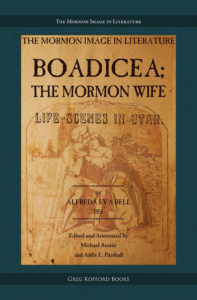 With Ardis Parshall, he co-edited the Mormon Image in Literature Series, including annotating and republishing John Russell’s 1853 novel “The Mormonness,” an early (and largely sympathetic) outsider’s fictional portrayal of Mormons. This novella is an important proof of concept for a core belief of Austin’s—that one can celebrate the goodness of people with whom one has profound disagreements. It is important that he locates this virtue in the writings of a non-Mormon about Mormons—this ability to fully inhabit and
With Ardis Parshall, he co-edited the Mormon Image in Literature Series, including annotating and republishing John Russell’s 1853 novel “The Mormonness,” an early (and largely sympathetic) outsider’s fictional portrayal of Mormons. This novella is an important proof of concept for a core belief of Austin’s—that one can celebrate the goodness of people with whom one has profound disagreements. It is important that he locates this virtue in the writings of a non-Mormon about Mormons—this ability to fully inhabit and  appreciate the perspective of “the other” is what makes Austin’s work on Mormonism so insightful. In his most recent book, Vardis Fisher: A Mormon Novelist, he performs the mind-trick in reverse: he reads the work of an unbelieving ex-Mormon to discover the first Mormon literature at epic scale—a body of work that is Mormon at its core, even as it rejects Mormon belief, because “[Mormonism] was part of the cultural and intellectual heritage in which [Fisher] lived and worked.”
appreciate the perspective of “the other” is what makes Austin’s work on Mormonism so insightful. In his most recent book, Vardis Fisher: A Mormon Novelist, he performs the mind-trick in reverse: he reads the work of an unbelieving ex-Mormon to discover the first Mormon literature at epic scale—a body of work that is Mormon at its core, even as it rejects Mormon belief, because “[Mormonism] was part of the cultural and intellectual heritage in which [Fisher] lived and worked.”
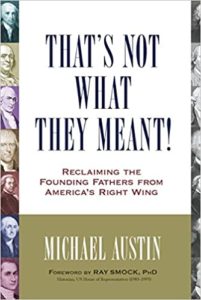 Michael’s “extracurricular” work—the things he pays attention to when he is not working on explicitly religious literature–also situates his readers in the “cultural and intellectual heritage” in which they live and work. Particularly in his books about the scripture of America’s civic religion, That’s Not What They Meant!: Reclaiming the Founding Fathers from America’s Right Wing and We Must Not Be Enemies: Restoring America’s Civic Tradition, Michael is concerned to show the ways that we (mis)interpret texts because of our shared heritage, regardless of whether we are embracing or rejecting that heritage—he is good at showing fish what water is.
Michael’s “extracurricular” work—the things he pays attention to when he is not working on explicitly religious literature–also situates his readers in the “cultural and intellectual heritage” in which they live and work. Particularly in his books about the scripture of America’s civic religion, That’s Not What They Meant!: Reclaiming the Founding Fathers from America’s Right Wing and We Must Not Be Enemies: Restoring America’s Civic Tradition, Michael is concerned to show the ways that we (mis)interpret texts because of our shared heritage, regardless of whether we are embracing or rejecting that heritage—he is good at showing fish what water is.
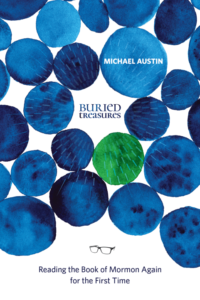 In life as in literature, Michael’s profligate curiosity inculcates the deep sort of charity that comes with suspending judgment for the sake of understanding. In much of his work, Michael has embodied the welding link that words can make by working together with many co-authors and co-editors, generously sharing the credit for collaborative work and modeling the value of a truly communal literature. His reading of every kind of work in every genre encourages generosity and civility in our approaches, even to work we don’t like—he models both enthusiastic celebration of good work and the possibility of intelligent and humane disagreement with bad work. Above all, Michael’s work and his life insist that writing and reading and criticism are morally important acts—worthy of effort and attention because they can be expressions of what is dearest and deepest in humanity.
In life as in literature, Michael’s profligate curiosity inculcates the deep sort of charity that comes with suspending judgment for the sake of understanding. In much of his work, Michael has embodied the welding link that words can make by working together with many co-authors and co-editors, generously sharing the credit for collaborative work and modeling the value of a truly communal literature. His reading of every kind of work in every genre encourages generosity and civility in our approaches, even to work we don’t like—he models both enthusiastic celebration of good work and the possibility of intelligent and humane disagreement with bad work. Above all, Michael’s work and his life insist that writing and reading and criticism are morally important acts—worthy of effort and attention because they can be expressions of what is dearest and deepest in humanity.
Michael Austin received his BA and MA in English from Brigham Young University and his Ph.D. in English Literature from the University of California at Santa Barbara. He is currently an academic administrator at the University of Evansville, Indiana.
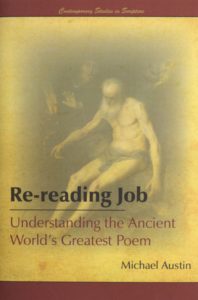 Among his seven books are Re-Reading Job: Understanding the Ancient World’s Greatest Poem (AML Religious Nonfiction Award, 2014) and Buried Treasures: Reading the Book of Mormon Again for the First Time (AML Religious Nonfiction Award, 2020). He has published several critical and historical articles on Mormon literature, including “How to Be a Mormo-American; Or, The Function of Mormon Criticism at the Present Time” (AML Criticism Award, 1995). His work on 19th and early 20th century Mormon authors include co-editing the Mormon Image in Literature series at Greg Kofford Books, co-editing Josephine Spencer: Her Collected Works, Vol. 1, 1887-1899, and writing Vardis Fisher: A Mormon Novelist (AML Criticism Award, 2021).
Among his seven books are Re-Reading Job: Understanding the Ancient World’s Greatest Poem (AML Religious Nonfiction Award, 2014) and Buried Treasures: Reading the Book of Mormon Again for the First Time (AML Religious Nonfiction Award, 2020). He has published several critical and historical articles on Mormon literature, including “How to Be a Mormo-American; Or, The Function of Mormon Criticism at the Present Time” (AML Criticism Award, 1995). His work on 19th and early 20th century Mormon authors include co-editing the Mormon Image in Literature series at Greg Kofford Books, co-editing Josephine Spencer: Her Collected Works, Vol. 1, 1887-1899, and writing Vardis Fisher: A Mormon Novelist (AML Criticism Award, 2021).
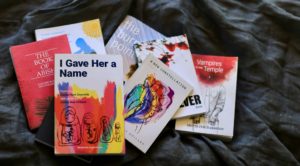 Michael is the Director of By Common Consent Press, the non-profit publishing house he co-founded in 2017. In his position as Director, he has transformed the worlds of Mormon studies and literature, providing publishing opportunities for a wide variety of poets, playwrights, essayists, novelists, and scholars.
Michael is the Director of By Common Consent Press, the non-profit publishing house he co-founded in 2017. In his position as Director, he has transformed the worlds of Mormon studies and literature, providing publishing opportunities for a wide variety of poets, playwrights, essayists, novelists, and scholars.
